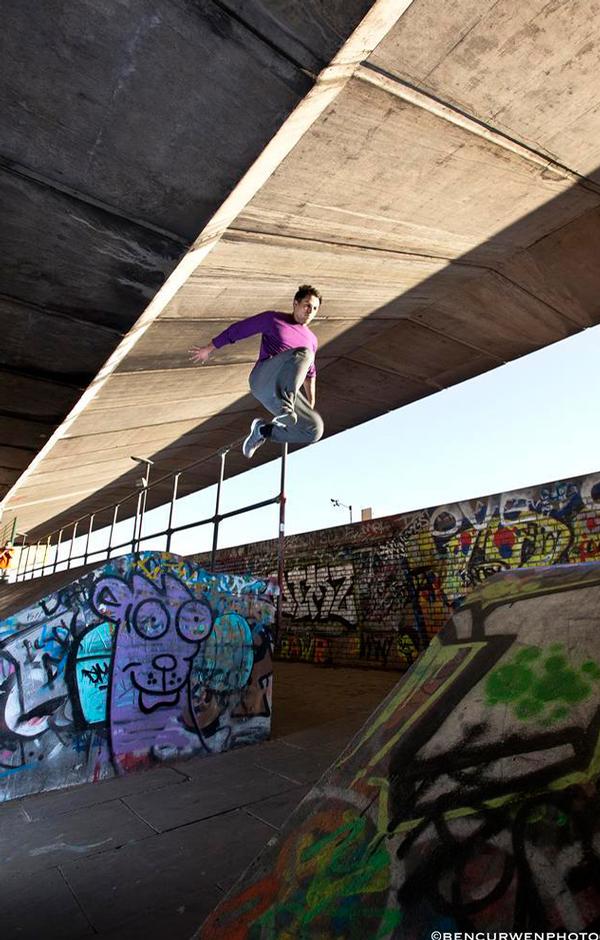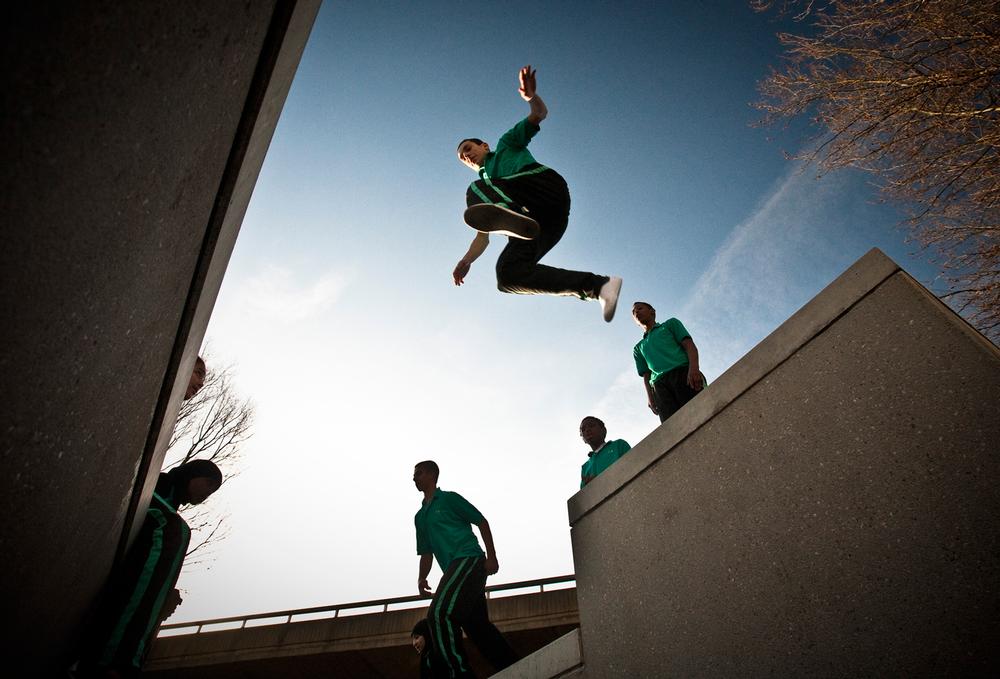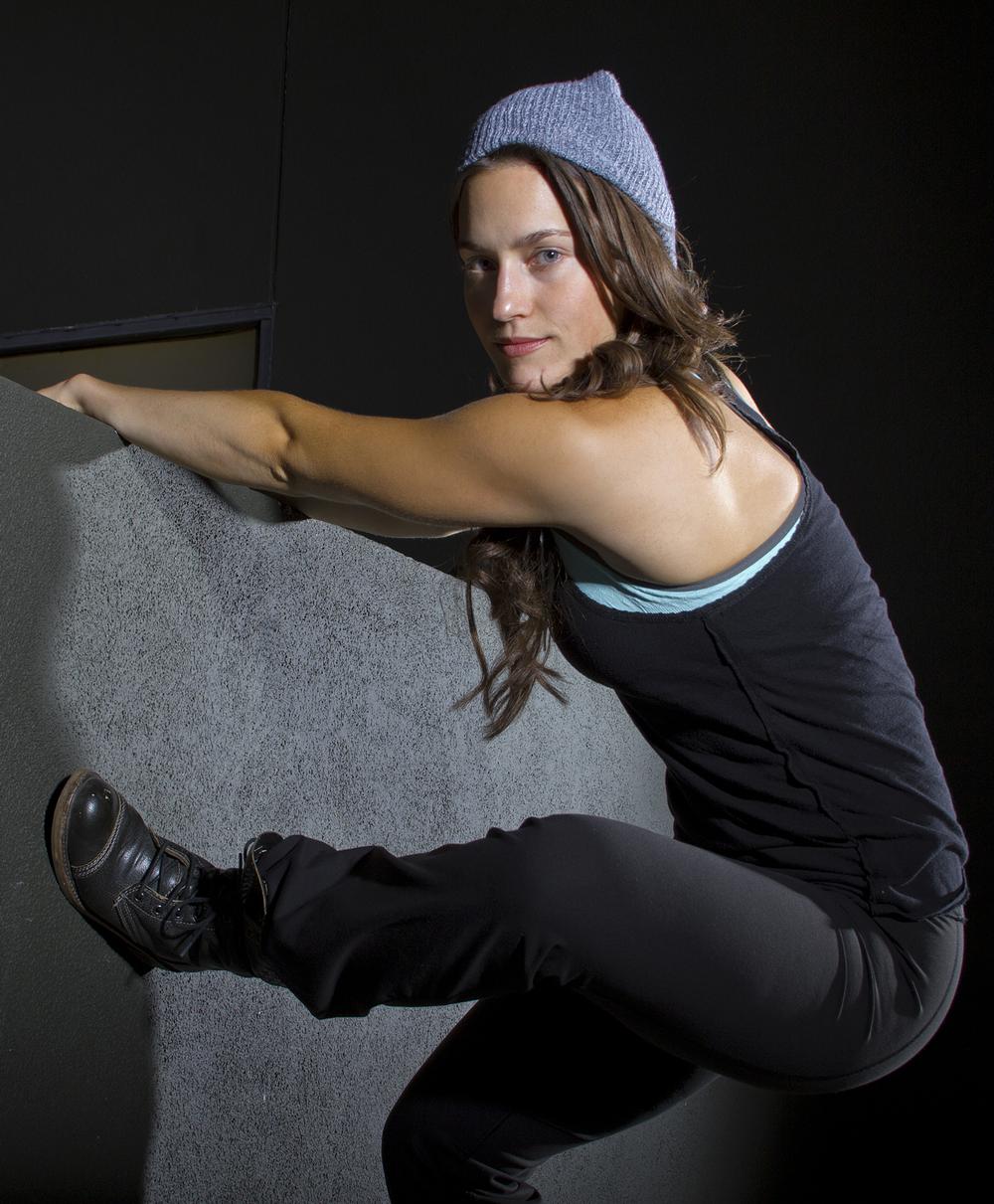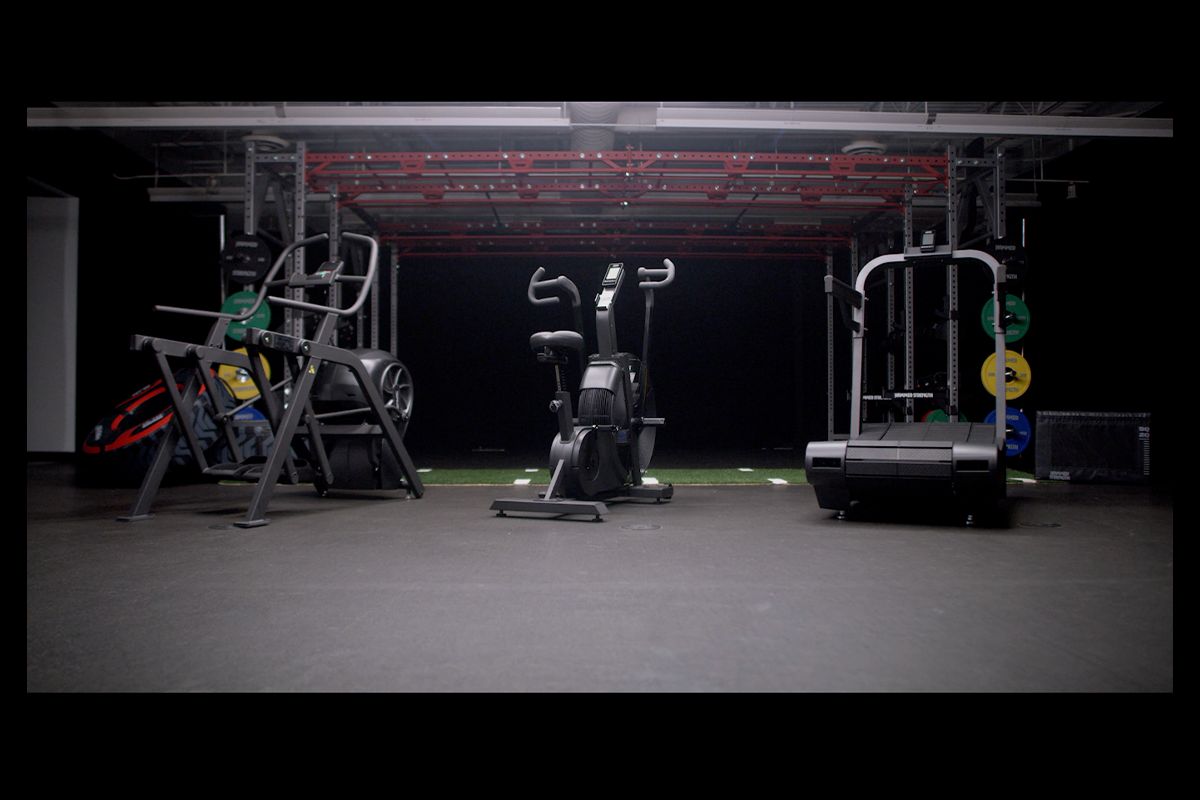Parkour
Parkour, or freerunning, is taking urban areas by storm all over Europe. As the first purpose-built centre opens in east London, we take a look at how Parkour can thrive as a sport

Parkour, freerunning and Art Du Déplacement. Three terms that all mean the same thing – the non-competitive physical discipline of training to move freely over and through any terrain using only the abilities of the body, through running, jumping and climbing.
In practice it focuses on developing the fundamental attributes required for such movement, which include functional strength and fitness, balance, spatial awareness, agility, coordination, precision, control and creative vision.
It's a sport that encourages self-improvement on all levels, revealing physical and mental limits, while simultaneously offering ways to overcome them. It's a method of training the body and mind in order to be as completely functional, effective and liberated as possible in any environment. The sport aims to build confidence, determination, self-discipline self-reliance and responsibility for one’s actions. It encourages humility, respect for others and for the environment, self-expression, community spirit, and the importance of play, discovery and safety at all times.
History
In one sense Parkour has existed for as long as we've moved on two legs – either out of necessity or for enjoyment. It exists at the base of all human movement, and lives and breathes in part within all physical endeavours, from the play of children to the methodology of modern sports. It will continue to exist as long as we find reward and pleasure in the exploration of our own physical talents.
The sport –originally referred to as Le Parcour – was founded in Lisses, France in the 1980s by nine young men; David Belle, Sébastien Foucan, Chau Belle, Yann Hnautra, Laurent Piemontesi, Charles Perriere, Malik Diouf, Guylain N’Guba Boyeke, and Williams Belle.
In mid 1997, the group was known as the Yamakasi (Lingala for “strong man, strong spirit”), a name suggested by N'Guba and first featured in broadcast media coverage on France’s Stade 2. The word parcours was used by Belle to describe the group’s physical and philosophical practice and featured on the t-shirts worn by Yamakasi, designed by Foucan. The Yamakasi created a new name for their movement-based practice: Art Du Déplacement, “the art of moving from one place to another”. This term was also used to describe the movements of the seven Yamakasi who starred in Luc Besson’s 2003 film of the same name. As the founders emphasized their diverse interests, other names came to the fore. The term ‘parkour’ was first introduced by David Belle in 1998 to describe parcours with a proper noun. Parkour derives from the French word parcours meaning route or course. Parkour practitioners became known as traceurs.
Running free
The term ‘Freerunning’ was used by Sébastien Foucan in a Channel 4 documentary, Jump London, in 2003 where it was used to describe the addition of creative movements, drawn from a variety of other disciplines to communicate this amazing new sport to an English-speaking audience.
Parkour UK has chosen to utilise the term parkour to represent the sport, not least because more than half of the UK’s young people have heard of parkour. While most commonly practiced by 13 to 30-year-olds, there's significant growth taking place within the eight to 13-year-olds. The UK leads the world, with around 25 per cent of all parkour practitioners being females – and the number of females taking up the activity is increasing rapidly. Regardless of how old people are when they start or what level of ability they start with, as time goes on and they gain enough experience in parkour/freerunning they begin to use the problem solving methods they are learning improve their quality of life overall.
One of the factors in Parkour’s popularity – and why it is universally recognised – is that it's so visually attractive and exciting. People now watch more YouTube videos of parkour/freerunning than skateboarding and BMX combined. What's more, parkour fits perfectly in the social media landscape, where sharing experiences through videos, images and short messages is so popular.
Organised parkour
Parkour UK is the national governing body for parkour, providing governance and regulation of parkour throughout the UK. We work closely with a variety of partners encouraging and developing the safe and appropriate practice of parkour in addition to working with groups and organisations.
Parkour UK has around 70 member organisations located across the UK. It has members as far north as the Shetland Islands and as far south as Plymouth in Devon – and everywhere between. It also provides a variety of awards, qualifications and a continuing professional development programme covering achieving, leading, coaching, teaching and instructing. These have been developed in conjunction with a variety of award bodies including AQA, Sports Leaders UK, 1st4sport Qualifications & CYQ.
Parkour UK’s qualifications are approved by sector skills council Skills Active and are part of the QCF – so they are recognised across Europe via the European Qualifications Framework. Coaching qualifications are awarded by 1st4sport Qualifications and meet the national occupational standards (NOS) for sports coaching and its instructing qualifications are awarded by CYQ and meet the NOS for exercise and fitness. Parkour UK also partners national projects, such as the Matalan Sporting Promise, to support members and help them deliver community initiatives. One of these, delivered by ParkourDance, offers parkour for the over 50s. Parkour is a sport that is available and accessible to everyone and anyone.
Additionally parkour in the UK has arguably the best cohort of professional freerunners in the world. Many of the world’s top practitioners are from UK based groups and teams – such as Storm Freerun, Storror and 3Run.
Facilities for parkour
The British Standards Institution (BSi) published BS10075:2013 the British Standard for Parkour Equipment in 2013. Parkour UK led the development of the standard, along with various partners.
This is a significant achievement for Parkour in the UK, which has been aiding the marked increase in new Parkour training facilities being developed, even prior to publication. Following publication it has had and continues to have a direct and beneficial impact enabling local authorities, schools, colleges, universities, sports centres, land owners, manufacturers and installers to build Parkour facilities and equipment that are fit-for-purpose, safe and to the recognised standard.
There are currently approximately 30 purpose built Parkour Parks across the UK ranging from the UK’s largest in Coatbridge Scotland to London’s LEAP Parkour Park in Paddington, manufactured and installed by our facility development partners Freemove. In addition there are several indoor Parkour facilities across the UK including Parkour Generations’ – The Chanistore in East London, The Airborn Academy in Liverpool and The Parkour Project in Poole. Parkour in the UK has a well established and thriving scene that it well developed and supported by Parkour UK as the NGB for the sport in the UK.
The Chainstore Parkour Academy
The Chainstore in east London is the UK's first purpose-built indoor parkour centre. Designed as a dedicated hub for parkour activities, the centre includes daily classes delivered by NGB qualified coaches, training and certification courses, youth academies and parkour holiday camps.
The venue is a partnership between Freemove, a provider of pre-fabricated parkour facilities, and Parkour Generations, a professional coaching and performance organisation. As part of the partnership, Freemove has supplied the academy with the first ever UK indoor concrete parkour equipment, complemented by a bespoke steel and panelled structure.
Facilities include a 14mx14m Parkour Zone, mimicking the conditions of the outside world in terms of materials, feel and atmosphere and a functional strength and fitness gym-space – complete with squat racks, lifting platforms, kettlebells, tractor tyres, prowlers, ropes, sledge-hammers and weights. There is also a dance and activity zone for yoga, martial arts and pilates and an observation deck overlooking the entire space.
The Chainstore is open every day of the week. Classes are priced at £10 and a daily drop in fee has set at £8. memberships can be acquired for six or 12 month terms and range from £40 to £85 per month.
What do you need?
- A Parkour UK qualified, insured and DBS checked coach (for sports sessions) / Instructor (for fitness sessions)
- Some equipment (such as the portable equipment from Freemove and other suppliers)
- To undertake a risk benefit assessment
For more information, advice & guidance on setting up Parkour/Freerunning provision or a facility contact Parkour UK on 020 3544 5834 or [email protected]



Recreation Assistant (Dry Site)
Party Leader
Cleaning Assistant
Duty Manager
Duty Manager
Team Leader (Harrow School Fitness Club)
Centre Manager (Leisure)
Director of Operations
Fitness Motivator
Recreation Assistant/Lifeguard (NPLQ required)
Membership Manager
Recreation Assistant
Swim Teacher
Swim Teacher
Chief Executive Officer, Mount Batten Centre
Swimming Teacher
Swimming Teacher
Company profile

Featured Supplier

Property & Tenders
Company: Knight Frank
Company: Belvoir Castle
Company: AVISON YOUNG
Company: London Borough of Bexley
Company: Forestry England














